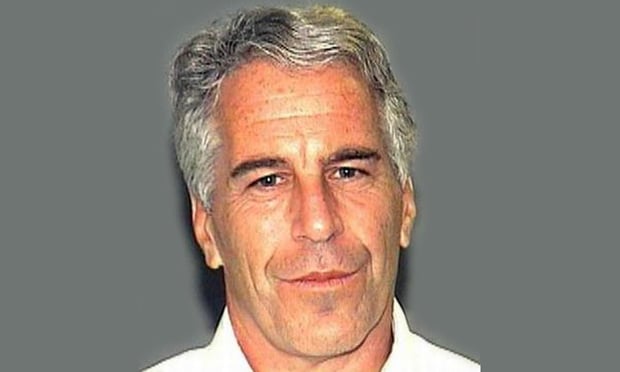Read the Ruling: 2nd Circuit Orders Jeffrey Epstein Records Unsealed, Cautions Media and Public
The U.S. Court of Appeals for the Second Circuit ordered the immediate release of nearly 2,000 pages of records related to Jeffrey Epstein's case, but not without warning the media and public about damaging the privacy and reputation of those linked to the "hard-fought-sensitive litigation."
July 03, 2019 at 11:43 AM
2 minute read
 Jeffrey Epstein's 2011 police mug shot.
Jeffrey Epstein's 2011 police mug shot.
The U.S. Court of Appeals for the Second Circuit Wednesday ordered the immediate unsealing of nearly 2,000 pages of records in the case against Florida billionaire Jeffrey Epstein. The court warned the media and public about the privacy ramifications for those mentioned in the documents.
“We recognize the potential damage to privacy and reputation that may accompany public disclosure of hard‐fought, sensitive litigation,” the opinion said.
Epstein pleaded guilty to two prostitution charges and served 13 months in Palm Beach County jail, but could have faced life in prison with a federal sex trafficking conviction. His alleged accomplices were never charged.
The panel also found the district court failed to conduct the “requisite particularized review” before sealing the filings.
“We therefore clarify the legal tools that district courts should use in safeguarding the integrity of their dockets,” it wrote.
A cautionary note to the public and word of advice to the media followed: ”We have long noted that the press plays a vital role in ensuring the public right of access. … At the same time, the media does the public a profound disservice when it reports on parties' allegations uncritically.”
Judge Rosemary S. Pooler dissented in part with the court's decision, though she agreed that all or most of it should be revealed. She wrote that the district court was better placed to communicate with those whose privacy interests would be affected by the decision, considering the reams of information it will release.
“The task of identifying and making specific redactions in such a substantial volume is perilous,” Pooler wrote. “The consequences of even a seemingly minor error may be grave and are irrevocable.”
Read the court order:
Related story:
Judge: Alex Acosta Broke the Law by Giving Jeffrey Epstein a Sweetheart Deal
This content has been archived. It is available through our partners, LexisNexis® and Bloomberg Law.
To view this content, please continue to their sites.
Not a Lexis Subscriber?
Subscribe Now
Not a Bloomberg Law Subscriber?
Subscribe Now
NOT FOR REPRINT
© 2025 ALM Global, LLC, All Rights Reserved. Request academic re-use from www.copyright.com. All other uses, submit a request to [email protected]. For more information visit Asset & Logo Licensing.
You Might Like
View All


Prosecutors Ask Judge to Question Charlie Javice Lawyer Over Alleged Conflict
Trending Stories
- 1Paul Hastings, Recruiting From Davis Polk, Continues Finance Practice Build
- 2Chancery: Common Stock Worthless in 'Jacobson v. Akademos' and Transaction Was Entirely Fair
- 3'We Neither Like Nor Dislike the Fifth Circuit'
- 4Local Boutique Expands Significantly, Hiring Litigator Who Won $63M Verdict Against City of Miami Commissioner
- 5Senior Associates' Billing Rates See The Biggest Jump
Who Got The Work
J. Brugh Lower of Gibbons has entered an appearance for industrial equipment supplier Devco Corporation in a pending trademark infringement lawsuit. The suit, accusing the defendant of selling knock-off Graco products, was filed Dec. 18 in New Jersey District Court by Rivkin Radler on behalf of Graco Inc. and Graco Minnesota. The case, assigned to U.S. District Judge Zahid N. Quraishi, is 3:24-cv-11294, Graco Inc. et al v. Devco Corporation.
Who Got The Work
Rebecca Maller-Stein and Kent A. Yalowitz of Arnold & Porter Kaye Scholer have entered their appearances for Hanaco Venture Capital and its executives, Lior Prosor and David Frankel, in a pending securities lawsuit. The action, filed on Dec. 24 in New York Southern District Court by Zell, Aron & Co. on behalf of Goldeneye Advisors, accuses the defendants of negligently and fraudulently managing the plaintiff's $1 million investment. The case, assigned to U.S. District Judge Vernon S. Broderick, is 1:24-cv-09918, Goldeneye Advisors, LLC v. Hanaco Venture Capital, Ltd. et al.
Who Got The Work
Attorneys from A&O Shearman has stepped in as defense counsel for Toronto-Dominion Bank and other defendants in a pending securities class action. The suit, filed Dec. 11 in New York Southern District Court by Bleichmar Fonti & Auld, accuses the defendants of concealing the bank's 'pervasive' deficiencies in regards to its compliance with the Bank Secrecy Act and the quality of its anti-money laundering controls. The case, assigned to U.S. District Judge Arun Subramanian, is 1:24-cv-09445, Gonzalez v. The Toronto-Dominion Bank et al.
Who Got The Work
Crown Castle International, a Pennsylvania company providing shared communications infrastructure, has turned to Luke D. Wolf of Gordon Rees Scully Mansukhani to fend off a pending breach-of-contract lawsuit. The court action, filed Nov. 25 in Michigan Eastern District Court by Hooper Hathaway PC on behalf of The Town Residences LLC, accuses Crown Castle of failing to transfer approximately $30,000 in utility payments from T-Mobile in breach of a roof-top lease and assignment agreement. The case, assigned to U.S. District Judge Susan K. Declercq, is 2:24-cv-13131, The Town Residences LLC v. T-Mobile US, Inc. et al.
Who Got The Work
Wilfred P. Coronato and Daniel M. Schwartz of McCarter & English have stepped in as defense counsel to Electrolux Home Products Inc. in a pending product liability lawsuit. The court action, filed Nov. 26 in New York Eastern District Court by Poulos Lopiccolo PC and Nagel Rice LLP on behalf of David Stern, alleges that the defendant's refrigerators’ drawers and shelving repeatedly break and fall apart within months after purchase. The case, assigned to U.S. District Judge Joan M. Azrack, is 2:24-cv-08204, Stern v. Electrolux Home Products, Inc.
Featured Firms
Law Offices of Gary Martin Hays & Associates, P.C.
(470) 294-1674
Law Offices of Mark E. Salomone
(857) 444-6468
Smith & Hassler
(713) 739-1250







